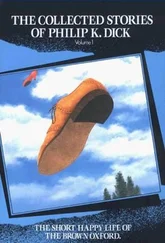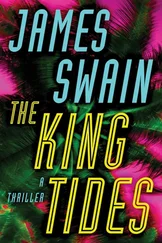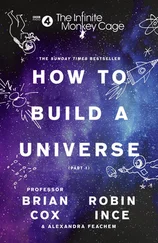. . .
There were so many tiny moments during those four days. He bought ice cream cones and they sat on a stone bench at the edge of the town’s main square and ate them. He had hardly known that the town even had a main square but she seemed quite familiar with it, even directing him to the location of the ice cream parlor. They went to the park then and he pushed her on the swing for a long time in silence and when she was done they walked back to the car and she reached up and put her tiny hand into his and he held that small thing, warm and soft, and they said nothing. A flock of birds drifted out of a tree as if a single cloud — sparrows or starlings or something else — and she pointed to them, saying nothing. He likely could have calculated the individual points they made in the sky, their flight in elliptic curves as they spun and wobbled and then returned, for reasons known only to birds, to the same tree from which they had, only moments before, taken flight. He could have calculated all of it, but the thought did not even come to him then. As if some moments were beyond such a reckoning. As if some moments were beyond any reckoning at all.
In the evenings they ate reheated frozen dinners from their plastic compartmentalized trays and watched cartoons and silly comedies and movies featuring horses as prominent characters. Some of the horses talked. Some did not. He tried to talk to her further about the way she saw numbers but she was distracted by the television so her responses were all in fragments or she would forget to answer him entirely. What he learned was that she already could solve simple equations, even understood the function of a variable so that he could ask her to solve x plus four equals nine and she could answer five without apparent thought or effort.
“That was fast,” he said.
“Easy.”
“What do see when you’re thinking of the answer?” he asked her.
“What do you mean?” she said. The purple horses on the television screen were trailing rainbows now. Some of them were apparently singing.
“I mean, what do you see in your head?”
“Just numbers and stuff.”
“Where? Like in space or in a room or on a sheet of paper?”
“Like in space,” she said.
“Yeah, that’s how I see math too. Like it’s floating in space. Do the colors help?”
“Help what?”
“Help you solve the problem?”
“That’s silly,” she said. “The numbers all know where to go. It’s easy-peasy.”
“What do you mean? What do you mean they know where to go?”
“They just do. They just go where they’re supposed to go. I can’t make them go somewhere they don’t want to go.”
He stood behind her in the kitchen, watching the back of her head. It all sounded like something he had thought long ago but would never have said aloud. Even now he would never say such a thing although it was true; he knew it was true. She saw numbers exactly as he did. Exactly. My god. And without effort. Like a natural process of her own mind. He wondered if he had possessed so much confidence at her age and then decided that he had not.
Barb’s father died on Monday. She called him in the late morning after he had dropped Quinn off at school and told him simply, “He’s gone.” He could hear the emotion in her voice, how close she was to weeping.
“I’m so sorry, Barb,” he said.
“Yeah, well,” she said. “At least he can breathe now.”
She asked about Quinn and he told her what they had done together but she did not seem to be listening to his response and after a few minutes she said she had to go and help her mother with something. She told him she would call back when she had information about the service. Then the conversation was over.
It was quiet in the house. He could not think of a time when it had seemed so profoundly silent.
He had been in his final year at Princeton when his own father had passed. He had worked for an insurance agency as a middle manager and had suffered a heart attack at home while dozing on the couch in front of the television. That was what his mother had told him. “Honey, I’m afraid I have some bad news,” she had said. “Your father had a heart attack. He’s dead, honey. I’m sorry.” The shock of the announcement sent him staggering backwards to his dorm room bed where he sat upon its edge trying to figure out a way not to believe the news. It was not that he had been particularly close to his father but still the man had been a constant presence in his life and now he was gone. Keith returned home for the funeral, standing by his mother at the gravesite and staring bleakly at the empty hole and the polished box that would ferry his father into the dirt. That night he sat in the room he had vacated for college and wept, not for the loss but because he realized that he was sitting in the room of a child and it was a room to which he could never return.
Six months after the funeral, he graduated with his bachelor’s degree in applied mathematics. Later that afternoon, he walked with his mother through the tree-lined neighborhoods and she told him how proud his father would have been. She did not tell him how proud she was or at least did not tell him then. Instead, she asked him if there were any parties he was going to later. He told her that there were a few he would probably attend and in fact this was true. At Princeton there had been many more bright students than he had encountered in high school and he had formed a handful of friendships based on a shared interest in math and difficult engineering questions. “You know I can’t help but worry about you,” his mother told him.
“I know,” he said, “but I’m OK.”
“You always say that,” she said.
“Because I always am.” He looked at her carefully. “I’m fine, Mom. I am.”
“I know you are, honey,” she said. She patted him on the arm. “You’ve done a good job.”
“Thanks,” he said. “One step closer to becoming an astronaut.”
“One step closer,” she said.
Three months later she told him she had breast cancer and three months after that she followed his father into the grave, her own plot of soil directly next to his. If there had been any question before about where he stood in relation to the world it had been clarified. He sold the house he had grown up in without any clear feeling of sadness, not because he lacked a sense of grief but because he was, even then, pragmatic. He did not want to live in the town he had grown up in, and now that he had the opportunity to stay he realized just how strongly he had come to hate it. There was not a single person there that he cared for now that his parents were gone, and when he thought of the people he had gone to school with for twelve years he could recall only generalized isolation and occasional embarrassment.
He only regretted that his parents would never see him fulfill the goals he had made for himself, that they would not see him become an astronaut. He did not even really know if his mother had truly understood that his goals were real and tangible and achievable. Certainly his father had not. Keith had shared the man’s pragmatism but his father lacked ambition, settling into what was a mediocre career and riding it all the way to his grave. His mother had no concrete career of her own and whether she was satisfied with his father’s choices was something he would never know. At least she seemed to understand that college was useful and that grades had value; whenever he had talked to his father, the question was always where he would work, what kind of job he could get with this degree or that degree, or if it would be more useful to get working right away and eschew the degree altogether. “You could get pretty far in a company in four years. You’d be four years ahead of all those college kids just getting their first real job.”
Читать дальше












